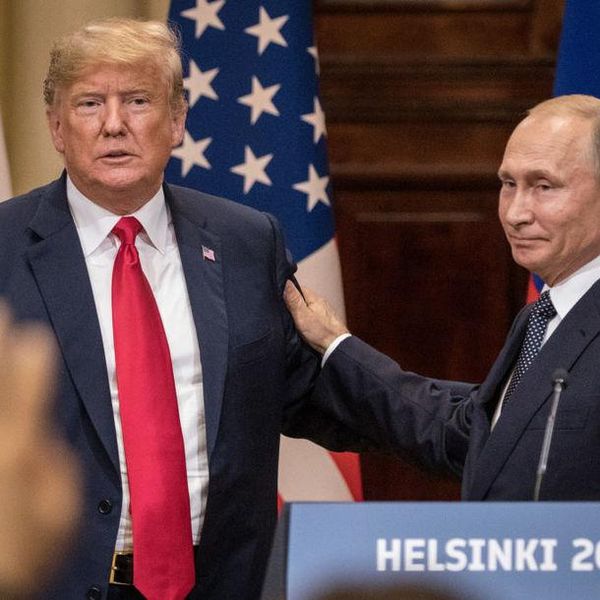
WASHINGTON — Do conservatives still believe in American greatness?
The question is not intended to discourage the healthy debate being pushed by Rand Paul and his allies over whether Republicans in the George W. Bush years were too eager to deploy our country’s armed forces overseas. After the steep costs of the Iraq War, it is a very necessary discussion.
But the libertarian senator from Kentucky has inadvertently called our attention to a deep contradiction within American conservatism.
Those who share Paul’s philosophical orientation are quite right in seeing the rise of American power in the world as closely linked to the rise of the New Deal/Great Society state at home. But this means that those who want the United States to play a strong role in global affairs need to ask themselves if their attitudes toward government’s role inside our country, which are similar to Paul’s, are consistent with their vision of American influence abroad.
After World War II, there was a rough consensus in America, confirmed during Dwight Eisenhower’s presidency in the 1950s, in favor of an energetic national government.
We emerged from the war as a global power that had learned lessons from the Great Depression. Government action could lessen the likelihood of another disastrous economic downturn and build a more just and prosperous society at home by investing in our people and our future.
Thus did the Marshall Plan and the GI Bill go hand in hand. The Marshall Plan eased Western Europe’s recovery from the devastation of war, thereby protecting friendly governments and opening new markets for American goods. The GI Bill educated a generation of veterans, spurring prosperity from the bottom up by enabling millions to join a growing middle class.
Eisenhower built on these achievements by creating the first college loan program and launching the interstate highway system. It’s no accident that the former was establishing by the National Defense Education Act while the latter was known as the National Interstate and Defense Highways Act.
Lyndon Johnson operated in the same tradition. It’s worth remembering that passage of the landmark civil rights acts was helped along by our competition with the Soviet Union. We realized we could not appeal to the nonwhite, nonaligned parts of the world if we practiced racism at home.
And we fought poverty — for moral reasons, but also because we wanted to show the world that we could combine our market system with economic justice. We forget that we succeeded. A strengthened Social Security system combined with Medicare slashed poverty rates among the elderly. Food stamps dealt with a real problem of hunger in our nation while Medicaid brought regular health care to millions who did not have it before.
Through it all, Keynesian economics kept our economy humming while widely shared prosperity created the sense of national solidarity that a world role required.
Paul and his allies deserve credit for consistency. They are against the entire deal.
“As government grows, liberty becomes marginalized,” Paul declared at the Conservative Political Action Conference last week. I think the evidence of all the years since World War II proves Paul flatly wrong. But then I am not a conservative.
But what of conservatives who endorse continued American global leadership but would drastically reduce government’s investments in our citizens and our infrastructure, in economic security and in health care?
Do they honestly think voters will endorse the military spending they seek even as they throw 40 million to 50 million of our fellow citizens off health insurance and weaken health coverage for our elderly? Can they continue to deny that their goal of an internationally influential America demands more revenue than they currently seem willing to provide? Have conservatives on the Supreme Court pondered what eviscerating the Voting Rights Act would do to the image of our democracy around the globe?
And do conservatives who say they favor American greatness think they are strengthening our nation and its ability to shape events abroad with an ongoing budget stalemate created by their refusal to reach agreement with President Obama on a deal that combines spending cuts and new taxes? Would they rather waste the next three years than make any further concessions to a president the voters just re-elected?
Rand Paul is very clear on the country he seeks. Conservatives who reject his approach to foreign policy need to consider where the strong America they honor came from in the first place.
E.J. Dionne’s email address is ejdionne@washpost.com.
© 2013, Washington Post Writers Group
Photo: Gage Skidmore/Flickr








